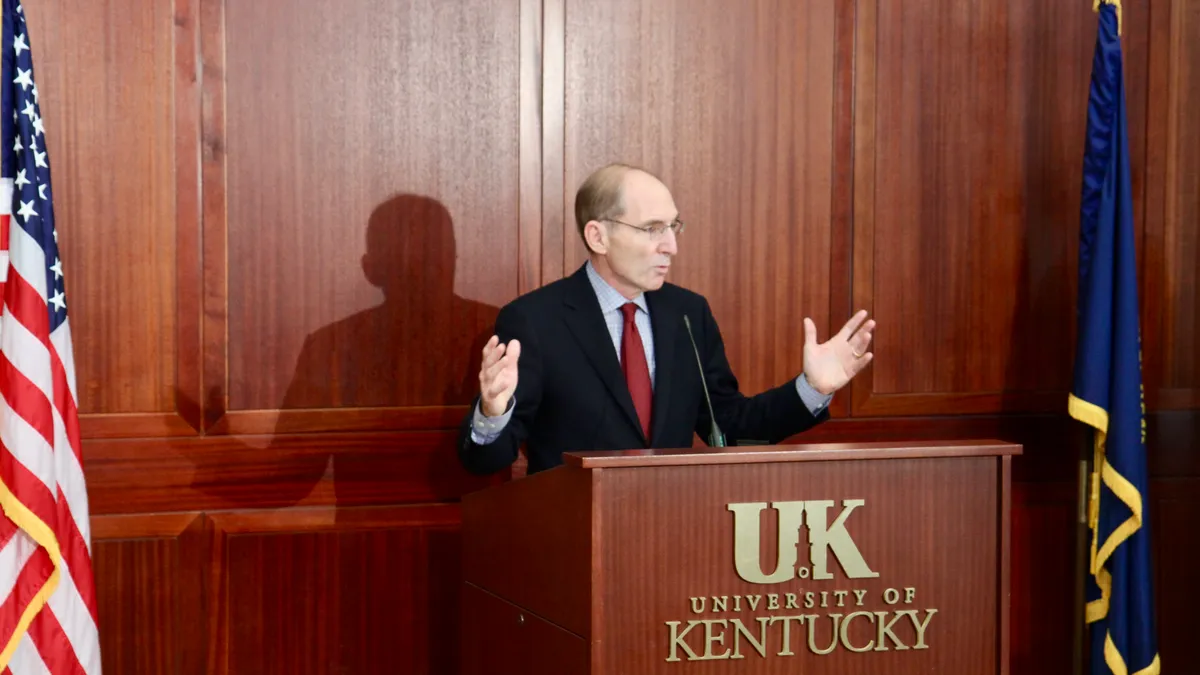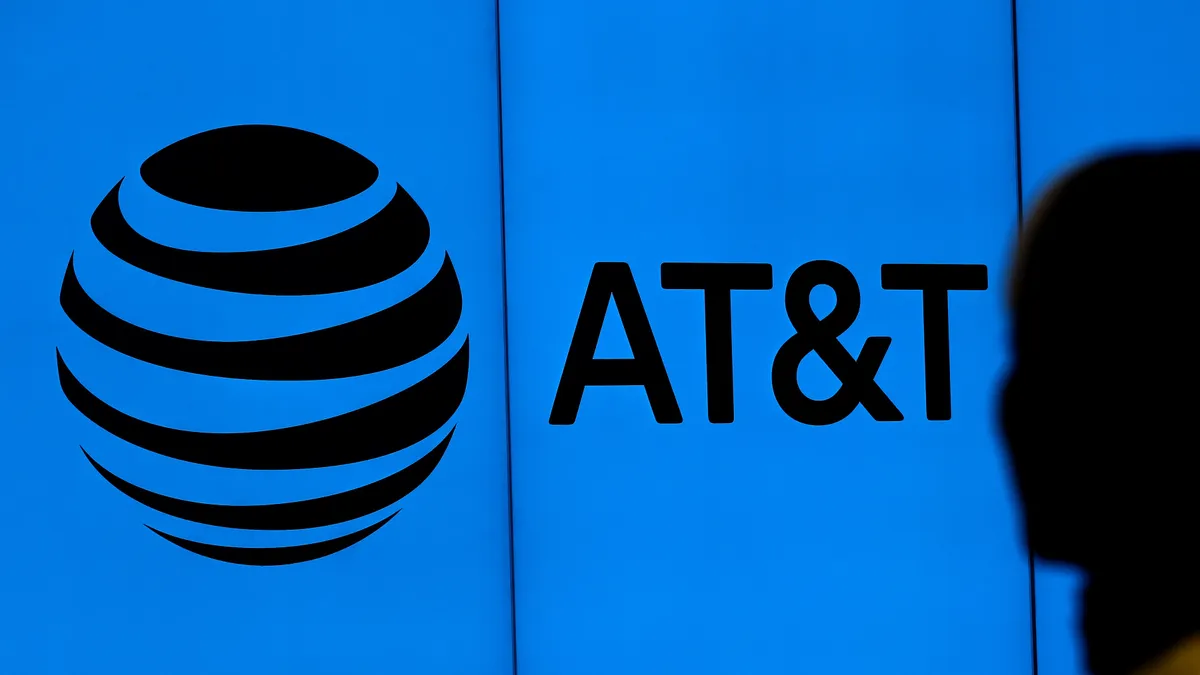The University of Kentucky dissolved its diversity, equity and inclusion center Tuesday, preemptively addressing concerns over DEI by the state's conservative lawmakers.
The institution will reassign the responsibilities of the Office for Institutional Diversity to other campus offices, and the changes will not result in any job losses, University of Kentucky President Eli Capilouto said in a statement.
The state flagship also banned mandatory diversity trainings and the use of diversity statements in hiring.
"This should in no way be construed as impinging upon academic freedom," Capilouto said. "Faculty decide what to teach as part of formal instruction and where discovery should take them as scholars in their areas of expertise."
Legislative attacks on DEI
Colleges in conversative-led states have increasingly faced political attacks on DEI-focused jobs and programming. Earlier this year, Kentucky lawmakers sought to ban almost all DEI efforts at the state’s public colleges, including by limiting what kind of trainings the institutions could require for employees and students.
One proposal would have allowed people to sue colleges over a failure to comply, opening institutions up to penalties of up to $100,000 per infraction.
“Instead of promoting intellectual dialogue, individualism, the content of one’s character and merit-based practices, DEI has driven a wedge against those of us who want to see Kentucky achieve greater things,” Mike Wilson, state Senate majority whip and author of one of the bills, said in January.
Free speech advocates have raised concerns over some of the broad language used in anti-DEI bills, arguing that it could chill speech.
The proposals in Kentucky ultimately didn’t pass, but the support behind them has not diminished.
Regardless, colleges often must plan for potential changes in laws, as implementation time can be short should they eventually pass. In this case, the University of Kentucky’s decision puts it ahead of potential forthcoming DEI restrictions in a state where Republicans hold a veto-proof supermajority in the Legislature.
"Kentucky legislators have made clear to me in our conversations that they are exploring these issues again as they prepare for the 2025 legislative session," Capilouto said Tuesday. “If we are to be a campus for everyone, we must demonstrate to ourselves and to those who support and invest in us our commitment to the idea that everyone belongs — both in what we say and in what we do.”
Moving forward
The president's announcement dissolved the Office for Institutional Diversity effective immediately, Jay Blanton, university spokesperson, said in a Wednesday email.
The directive may have come as a surprise at a university that has prioritized DEI in recent years.
The university's mission statement lists promoting diversity and inclusion as part of its core responsibilities. And at least 20 of the university's colleges and departments maintain their own DEI websites.
In 2020, Capilouto announced a 17-part, campuswide project designed to boost DEI at the University of Kentucky. By 2021, the university said over 500 community members had been involved with the effort.
The Office for Institutional Diversity oversaw departments like the Martin Luther King Center, which aimed to boost student success, and the university's lifelong learning programs.
Neither program is disappearing, however. The MLK Center will move to the Office for Student Success, and a new department, the Office for Community Relations, will manage the adult and senior learning initiatives.
This should in no way be construed as impinging upon academic freedom. Faculty decide what to teach as part of formal instruction and where discovery should take them as scholars in their areas of expertise.

Eli Capilouto
President of the University of Kentucky
The university, meanwhile, also banned departments and offices from taking official political positions on current events.
University officials “listened to policymakers and heard many of their questions about whether we appear partisan or political on the issues of our day and, as a result, narrowly interpret things solely through the lens of identity," Capilouto said. "In so doing, the concern is that we either intentionally or unintentionally limit discourse."
DEI officers and other employees who hold soon-to-be eliminated positions will be reassigned, Capilouto said.
"Colleges and units will work with members of our community whose titles include diversity officer to better recognize what I heard from so many — that their efforts support all members of a college or unit," he said. "On any given day, there are more than 2,000 positions open."
The university expects the job transition period to take place over the next few weeks, Blanton said. During that time, it will also ensure its websites comply with the impartiality order.
Kentucky Rep. Jennifer Decker, a Republican who introduced one of the bills to limit DEI at state colleges, approved of the university's decision in an email Wednesday.
"Our efforts have always been aimed at eliminating unconstitutional, unnecessary, costly, and duplicative bureaucracy, while still making sure campuses are open and welcoming to a diversity of students and staff," Decker said.
She said she hoped the University of Kentucky's actions would serve as an example to other colleges to "recognize that this failed experiment has done nothing to make postsecondary education more accessible."























